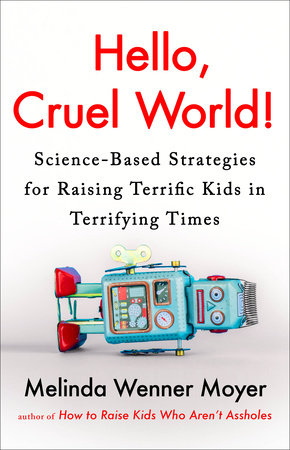When Devon B. was in the fourth year, the primary school that she frequented in Chatham, NJ, noted the winter conditions about to develop and announced an early dismissal. It was noon and the snowflakes had started to fall, which prompted the school to call Devon’s mother. Could she come and pick up her child? It is normal for Devon to work, the mother said; The house was only half a million school. While the Devon crossed the snow, his mother received a handful of calls from concerned parents. Should she walk alone in this time?
“In situations like this, when there is such a small probability of danger, it is so much better that a child is given this independence,” said Melinda Wenner Moyer, journalist and author of “Hello, Cruel World! Scientific strategies for the education of formidable children in terrifying moments.” These are the opportunities we need to give advice for children. Parents.
Children are better able to face when they learn to be kind to themselves; Auto -compassion results in less anxiety, stress and depression – and more kindness towards others. Resilience, the ability to manage adversity and continue failure or disappointment, is also crucial for children. And understanding the need for rest and recovery prevents children from accepting a state of permanent stress, which erodes well-being. The development of these resources will offer some protection over time against drug abuse and drug addiction, scourges afflict those lacking in adaptation skills.
 What can parents do? Give the vocabulary to the children to discuss their feelings and specify that being sad or upset is not an anomaly but part of life, advises Mory. Back up performance pressure and normalize failure by sharing your own difficulties. Avoid jumping at each sign of distress, because children interpret such interventions as a sign of their own incompetence. In addition, go away from the overflight and follow-up of your children, because an excessive parental involvement reduces the motivation of children and undermines academic performance. And to withstand the false notion that the danger hides each turn by allowing your child to take reasonable risks and allowing him to wiggle. Along the way, model the behavior you would promote: demonstrate self-compassion, use substances responsible for a responsibility and do not apologize for having taken a break. Moyer offers much more advice supported by research on the increase in children’s adaptability capacities.
What can parents do? Give the vocabulary to the children to discuss their feelings and specify that being sad or upset is not an anomaly but part of life, advises Mory. Back up performance pressure and normalize failure by sharing your own difficulties. Avoid jumping at each sign of distress, because children interpret such interventions as a sign of their own incompetence. In addition, go away from the overflight and follow-up of your children, because an excessive parental involvement reduces the motivation of children and undermines academic performance. And to withstand the false notion that the danger hides each turn by allowing your child to take reasonable risks and allowing him to wiggle. Along the way, model the behavior you would promote: demonstrate self-compassion, use substances responsible for a responsibility and do not apologize for having taken a break. Moyer offers much more advice supported by research on the increase in children’s adaptability capacities.
Learning to connect with others is essential, especially since the fractures of American society and online activities supplant interactions in person. Children need help to build compassion and empathy for others and skills in stable relationships, as well as healthy curiosity.



